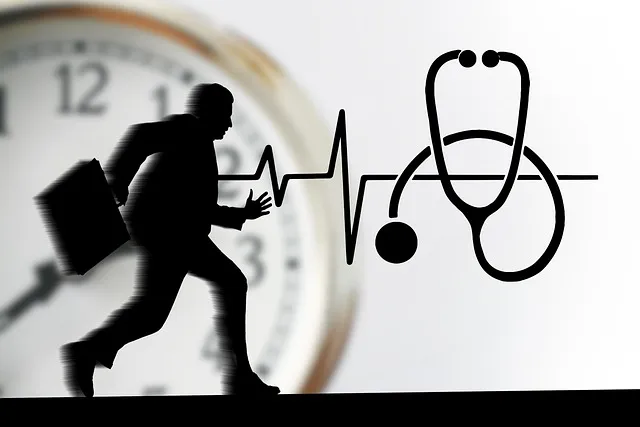Kaiser Permanente's innovative training programs in Littleton, Colorado, promote mental wellness through the RFM (Resilience, Frequency, Moment) model. This structured approach helps build resilience by analyzing past experiences, current behavior, and stress moments. Programs include interactive workshops, role-playing scenarios, and regular team meetings to enhance mindfulness, stress management, and flexibility. Success is measured through participant feedback, self-reported progress, and performance metrics, driving continuous improvement in Mental Health Awareness and Self-Esteem Improvement.
In today’s fast-paced world, building resilience is paramount for organizations like Kaiser Permanente. RFM (Recovery, Flexibility, and Mastery) exercises have emerged as a powerful tool to enhance employee resilience, fostering adaptability in the face of challenges. This article explores the implementation of RFM within Kaiser Permanente training programs in Littleton, providing a step-by-step guide to successful integration. We’ll delve into measuring success and strategies for continuous improvement, highlighting best practices tailored to this unique healthcare setting.
- Understanding RFM and Its Role in Resilience Building
- Implementing RFM Exercises: A Step-by-Step Guide for Kaiser Permanente Training Programs in Littleton
- Measuring Success and Continuous Improvement in Resilience Training
Understanding RFM and Its Role in Resilience Building

Resilience is a cornerstone of mental wellness, enabling individuals to navigate life’s challenges with strength and adaptability. Recognizing this, organizations like Kaiser Permanente have incorporated Resilience, Frequency, and Moment (RFM) models into their training programs in Littleton, Colorado. The RFM framework offers a structured approach to fostering resilience by assessing an individual’s past experiences, current frequency of resilient behaviors, and moments that demand or encourage such behavior.
This model is particularly valuable for the Community Outreach Program Implementation initiatives aimed at enhancing mental wellness within diverse communities. By understanding how individuals respond to stress and adversity (frequency) and identifying key triggers (moments), coaching programs can be developed through Mental Wellness Coaching Programs Development. Moreover, these programs contribute to Mental Illness Stigma Reduction Efforts by promoting a culture of empathy and understanding, where individuals feel supported in cultivating resilience.
Implementing RFM Exercises: A Step-by-Step Guide for Kaiser Permanente Training Programs in Littleton

Implementing RFM (Resilience, Flexibility, and Mindfulness) exercises within Kaiser Permanente training programs in Littleton involves a strategic, step-by-step approach designed to enhance employee emotional well-being promotion techniques and overall resilience.
First, organize interactive workshops focusing on each RFM pillar. These sessions could include breathing exercises for mindfulness, stress management techniques, and movement practices for flexibility. Encourage participation through group activities and personalized reflection. Next, integrate these exercises into existing training modules, aligning them with specific job-related challenges identified in the Kaiser Permanente context. This could involve role-playing scenarios to practice emotional regulation during high-pressure situations. Finally, establish a consistent schedule for RFM sessions, incorporating them into regular team meetings or creating dedicated resilience-focused days, ensuring continuous development through public awareness campaigns and ongoing support.
Measuring Success and Continuous Improvement in Resilience Training

Measuring the success of resilience training programs is an essential step to ensure their effectiveness and foster continuous improvement. Kaiser Permanente training programs in Littleton have adopted innovative methods to evaluate the impact of their initiatives. By utilizing participant feedback, self-reported progress, and objective performance metrics, they gain valuable insights into what works and what needs refining. This data-driven approach allows for tailored adjustments in program design, ensuring that each session meets the unique needs of the attendees.
The Mental Health Education Programs Design incorporates strategies to enhance Mental Health Awareness and Self-Esteem Improvement, both crucial aspects of building resilience. Regular assessments help identify areas where participants exhibit growth or struggle, prompting instructors to adapt their teaching methods accordingly. This dynamic process encourages a culture of continuous learning and development, ultimately leading to more robust and lasting outcomes in resilience-building exercises.
The implementation of RFM (Resilience, Flexibility, and Mastery) exercises within Kaiser Permanente training programs in Littleton has shown significant potential in enhancing resilience. By following a structured step-by-step guide, these programs have successfully integrated RFM into their curriculum, fostering an environment that prepares individuals to navigate challenges with greater adaptability and strength. Continuous improvement is key, as measured through regular assessments, ensuring the effectiveness of resilience training remains a priority for Kaiser Permanente’s Littleton training initiatives.






